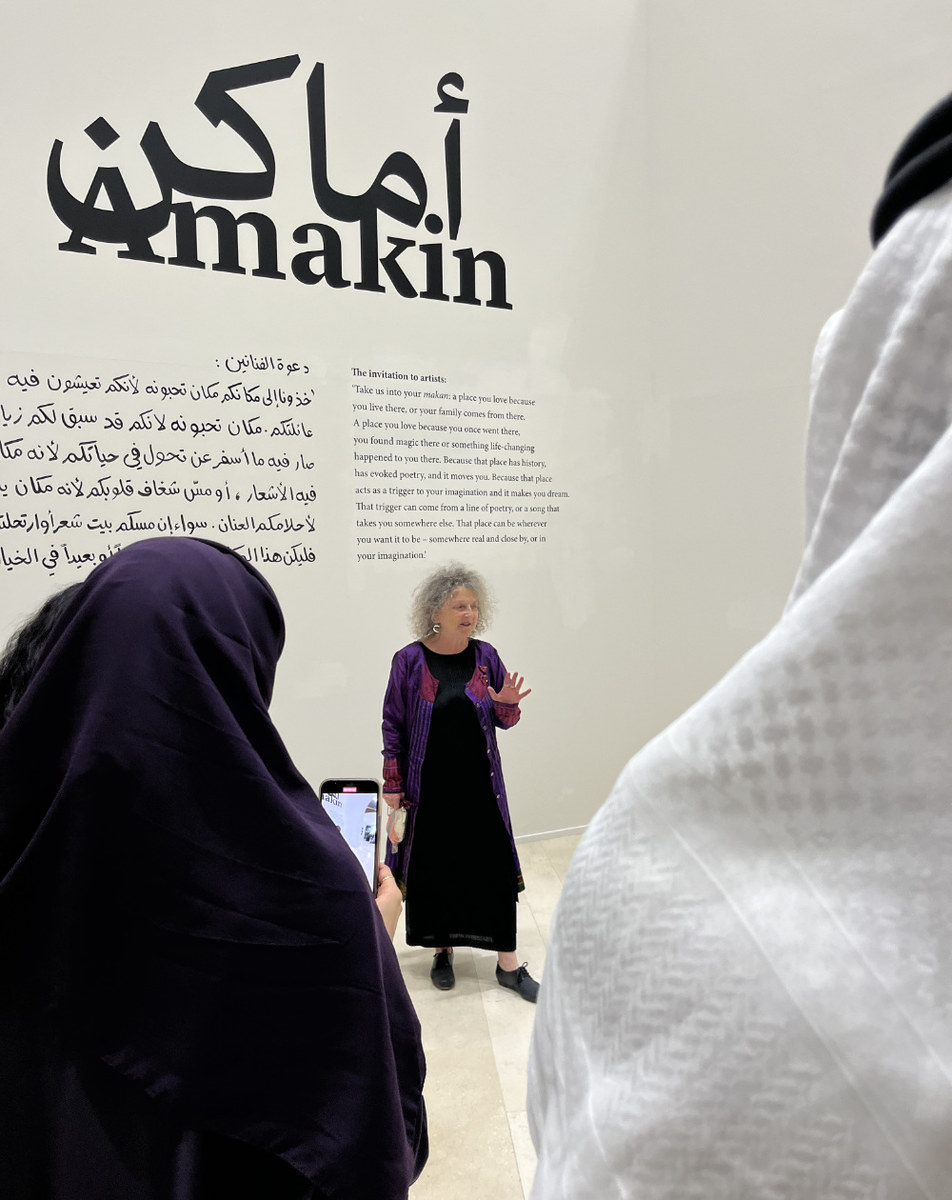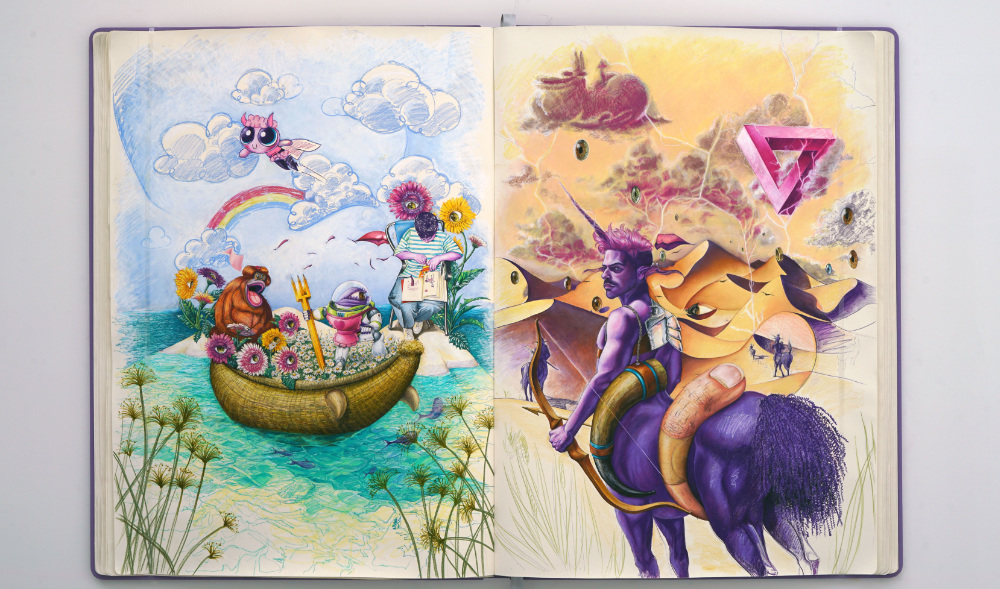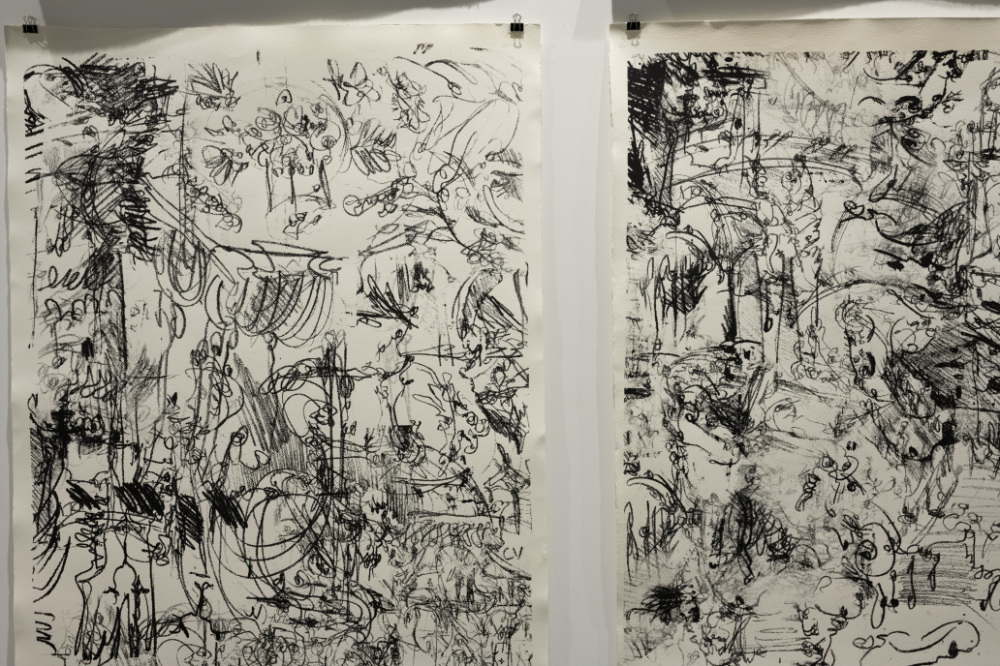DHAHRAN: A popular Arabic song by a legendary Saudi singer inadvertently became the inspiration for an entire art exhibition that debuted last year in Jeddah. For the first time, that exhibit is now housed in Dhahran, where original works of art serve as personalized portals of nostalgia that allow viewers to take a trip down memory lane to real or imagined destinations. The works will be displayed at the King Abdulaziz Center for World Culture, or Ithra, for three months, where the exhibit opened on June 30.
FASTFACT
The exhibit was curated by world-renowned expert in Islamic and contemporary Middle Eastern art Venetia Porter and was originally displayed at SAC in Jeddah from March 3 to June 3, 2022. This is the first time it is shown outside of its hometown.
The exhibit wrestles with the simple yet profound question: “What does the notion of place mean to you?” During the height of the COVID-19 pandemic, the concept of one’s “makan,” or “place,” became a contemplative space for some and a refuge for others. Some escaped to a place created by their imagination, and others used their physical surroundings to build up their idea of a place.

Curator Venetia Porter
In a special treat for Shargiyya residents in eastern Saudi Arabia, the works of 27 artists previously displayed in Jeddah, in addition to the work by local artist Abdulrahman Al-Soliman, were displayed locally. The exhibit was created for the ninth edition of 21,39 by the Saudi Art Council, which was founded in 2013 by a group of local art patrons and led by Princess Jawaher bint Majed bin Abdulaziz.
21,39 Jeddah Arts is a non-profit initiative organized by SAC. Using the geographic coordinates of the city of Jeddah (21.5433°N, 39.1728°E), it seeks to establish Jeddah as the main destination in the Kingdom’s contemporary art scene. The 28th artist, Shargiyya artist and author Al-Soliman, was added by Ithra for this iteration to pay homage to a local pioneer in the Saudi art scene.

Obadah AlJefri’s piece
The exhibit was curated by world-renowned expert in Islamic and contemporary Middle Eastern art Venetia Porter and was originally displayed at SAC in Jeddah from March 3 to June 3, 2022. This is the first time it is shown outside of its hometown.
“The exhibition ‘Amakin’ is inspired by the song ‘All the places long for you,’ by Mohammed Abdu, whom everybody knows. The exhibition started in Jeddah — this was an exhibition that included 27 artists — and each artist tells us, through the work they create about a place that means something to them, whether it’s a physical place or a place in the imagination,” curator Porter told Arab News.
“I am very happy to be talking to you today about our very special exhibition hosted in Gallery One called ‘Amakin’ in collaboration with SAC. ‘Amakin’ means ‘spaces,’ which is very fitting for where we are right now. Ithra is a very unique space within itself and for what it provides,” head of Ithra Museum Farah Abushullaih told Arab News.

Badr Ali’s sketches
The exhibition feels almost like a collage of emotional homes, where emerging Saudi and international artists display their interpretation of a “makan” next to the works of pioneer artists, representing various generations and styles. The works range from photographs to mixed media.
One such artist is Jeddah-born Obadah Al-Jefri, who brought pages from his sketchbook to life, creating a dialogue with his past and current selves, with each giant page representing a different version of his perspective.
“My artwork examines my relationship with a sketchbook and how I found different parts of my identity within the pages of my sketchbook. The work itself feels like a collaborative effort between my present and younger self, and I explore those themes and honor my younger self for pushing me forward to become an artist and to pursue art professionally,” he said.
Badr Ali, another artist, began with paper and shifted to a different medium, employing printmaking techniques to transfer his ideas to silkscreen and using the markings of the five places he frequents, either physically or emotionally.
His family comes from Jeddah, a place that greatly inspired him, but he also grew up in London, worked in Paris and currently lives in Berlin. His fascination with Florence also prompted him to explore those destinations and create a new visual experience. He created drawings for each of these locations and combined them to create new locations.
“My work is based on drawings I made in cities that I live in or have lived in and have a personal connection to. I created a whole series of drawings in each of these places, around 100. In each one, I register memories, feelings, thoughts, and sensations. I chose the method of silkscreen printing as a way to create or combine elements in each of these locations,” he told Arab News.
The 19 artists from Saudi Arabia are: Abdullah Al-Othman, Abdulhalim Radwi, legendary artist Safeya Binzagr, Reem Al-Faisal, Bashaer Hawsawi, Emy Kat, Mohammed Hammad, Obadah Al-Jefri, Sara Abdu, Badr Ali, Asma Bahmim, Hussein Al-Mohasen, Muhannad Shono, Lujain Faqerah and Shadia Alem.
The Shargiyya artists are: Abdulrahman Al-Soliman, Talib Al-Marri, Bader Awwad Al-Balawi and Manal Al-Dowayan.
The remaining nine non-Saudi artists are: Taysir Batniji and Sadik Kwaish Al-Fraji from Palestine; Aisha Khalid and Imran Qureshi from Pakistan; Dia Al-Azzawi, Ghassan Ghaib and Nazar Yahya from Iraq; Ali Cherri from Lebanon and Catalina Swinburn from Chile.















